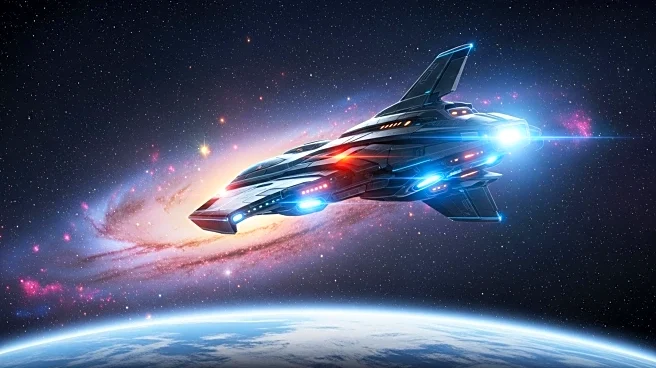What's Happening?
Master of Orion II, a classic 4X strategy game, continues to captivate players 30 years after its initial release. The game, known for its exploration, expansion, exploitation, and extermination mechanics, allows players to develop planets, research technologies, and conquer opponents across a galaxy map. Despite its age, the game remains popular due to its deep strategic gameplay and long-term payoff, which appeals to fans of the genre. The game has been kept alive through patches and a DRM-free version available on GOG.com, enabling multiplayer experiences via platforms like Reddit and Discord.
Why It's Important?
The enduring popularity of Master of Orion II highlights the lasting appeal of complex strategy games that offer deep, engaging experiences. This longevity demonstrates the potential for classic games to maintain relevance and attract new players, even decades after their release. The game's success underscores the importance of strategic depth and player choice in game design, influencing modern game development. Additionally, the availability of the game on platforms like GOG.com ensures that it remains accessible to a new generation of gamers, preserving its legacy and impact on the gaming industry.
What's Next?
As Master of Orion II continues to be celebrated, there may be opportunities for remakes or enhanced versions that leverage modern technology while retaining the core gameplay elements that fans love. The game's ongoing popularity could inspire developers to create new titles within the 4X genre, drawing on the successful formula of exploration and strategic decision-making. Furthermore, community engagement through multiplayer platforms may lead to new content or fan-driven modifications, keeping the game fresh and relevant.
Beyond the Headlines
The sustained interest in Master of Orion II reflects broader trends in the gaming industry, where nostalgia and retro gaming have become significant cultural phenomena. This trend raises questions about the balance between innovation and tradition in game development, as well as the role of community-driven content in extending the life of classic games. The game's success also highlights the potential for digital distribution platforms to preserve and promote older titles, ensuring their continued influence on gaming culture.









